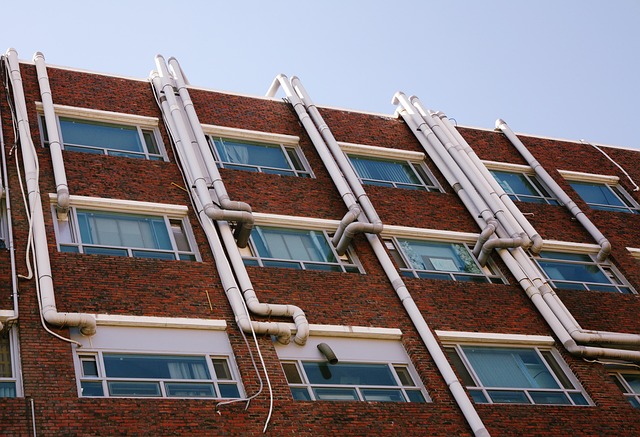Pipe corrosion, accelerated by hard water and mineral deposits like calcium, magnesium, iron, manganese, and sulfur, severely damages plumbing systems, leading to leaks, structural failures, and coating degradation. Regular cleaning, descaling, corrosion-inhibiting coatings, and optimized water softening techniques are essential mitigation strategies for the common causes of pipe corrosion across various industries.
In many homes and industrial settings, pipe corrosion remains a persistent issue, often leading to costly repairs and disruptions. Understanding the common causes of pipe corrosion, such as hard water and minerals, is crucial in mitigating this problem. This article delves into the mechanics of pipe corrosion, explores how hard water and minerals accelerate the process, and offers practical strategies for prevention and remediation. By understanding these factors, you can protect your pipes from a double whammy of deterioration.
- Understanding Pipe Corrosion: The Basic Mechanics
- Hard Water and Minerals: A Double Whammy for Pipes
- Mitigating Pipe Corrosion: Strategies and Solutions
Understanding Pipe Corrosion: The Basic Mechanics

Pipe corrosion is a pervasive issue that can significantly impact plumbing systems, leading to costly repairs and maintenance. Understanding the basic mechanics behind pipe corrosion is essential in identifying effective prevention strategies. Corrosion occurs when certain metals in pipes react with water and oxygen, forming new compounds and eventually leading to the breakdown of the metal’s structure. This process is often accelerated by various factors, making it crucial to recognize the common causes.
One of the primary drivers of pipe corrosion is the presence of hard water and minerals. Hard water, rich in calcium and magnesium, can penetrate pipes and accelerate corrosion by creating an environment conducive to rust formation. Minerals, such as iron, manganese, and sulfur, commonly found in water supplies, further exacerbate the issue. These substances react with the metal over time, causing pitting, creasing, and eventual failure of the pipe’s protective coating or lining. As corrosion progresses, it weakens the pipe’s integrity, leading to leaks and potential structural damage.
Hard Water and Minerals: A Double Whammy for Pipes

Hard water and minerals present a unique challenge for pipes, acting as a double whammy that accelerates corrosion. These natural substances, often overlooked, can significantly contribute to the deterioration of piping systems over time. When hard water containing elevated levels of calcium and magnesium comes into contact with metal pipes, it forms a mineral deposit on their surfaces. Over time, these deposits accumulate, leading to what is known as scale buildup. Not only does this scaling reduce the effective diameter of the pipes, but it also creates vulnerable spots where corrosion can initiate and spread.
Minerals, such as iron, manganese, and sulfur, naturally present in water sources, further complicate matters. These minerals can react with oxygen and moisture in the pipe, forming corrosive compounds that eat away at the metal. The result is a weakened pipe structure, increasing the likelihood of leaks and failures, which are common causes of pipe corrosion. Understanding this dynamic is crucial for maintaining piping systems, especially in regions with hard water sources, as it highlights the need for regular maintenance and appropriate treatment methods to mitigate the effects of these natural contributors to pipe degradation.
Mitigating Pipe Corrosion: Strategies and Solutions

Pipe corrosion is a significant concern for many industries, with hard water and mineral deposits playing a substantial role in its acceleration. Understanding common causes is the first step toward effective mitigation. Hard water, rich in minerals like calcium and magnesium, can lead to the formation of scale inside pipes over time. This scale buildup not only reduces pipe insulation but also provides an environment conducive to corrosion. Additionally, certain minerals can react with the material of the pipes, leading to chemical degradation.
To combat these issues, several strategies can be employed. Regular cleaning and descaling using specialized chemicals or water treatment solutions can prevent mineral accumulation. Implementing corrosion-inhibiting coatings on pipe surfaces offers a protective barrier against aggressive water conditions. Additionally, optimizing water softening techniques ensures that hard water is treated before entering pipes, minimizing the impact of mineral deposits.
Hard water and minerals, while essential for life, can act as a double whammy for pipes, accelerating corrosion. Understanding the basic mechanics of pipe corrosion and its common causes, such as exposure to hard water and mineral buildup, is crucial in mitigating this issue. By implementing effective strategies and solutions discussed in this article, homeowners and professionals alike can extend the lifespan of their piping systems, ensuring efficient and safe water flow for years to come.
